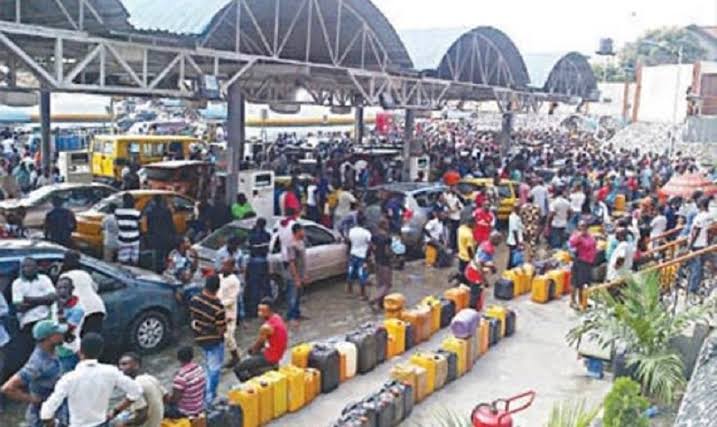
By Aanu Oluyide A few days ago, on my way to work, I saw a crowd gathered opposite Palm’s Mall, Ibadan. A man was on the floor, badly beaten, and beside him was an old generator. What is the story? This man went to a house to steal fuel from a generator and he was caught. We all know what this means in a place like Ibadan considering the general jungle justice culture that is prevalent in Nigeria, which is due to Poverty, Illiteracy and a lack of effective prosecution by law enforcement agencies.
I have formulated images of how the average Nigerian Society will react to the fuel subsidy removal in my head but as I go out daily, I realize that these are no longer imagination but raw outcomes of the new fuel price hike. Consider the aforementioned background story one of such.
Have you thought deeply about what a significant change in the price of the most crucial product in Nigeria would cause in the lives of the average Nigerian, in reference to the fact that we are a value-eroded nation and it is typical to tow the anarchy lane once policies like this are put in place? It is like adding gasoline to a fire derived from matchsticks.
There have been reported cases of chaos, thefts, people stranded on the roads, and people quitting their jobs because factoring the new transport fare reality into their salaries leaves them with little to nothing.
We are plunging deeper into people working and having nothing to show for it.
Schools are no longer able to fund school buses, and teachers have to skip a few days thereby affecting the completion of the syllabus. The Edo State Government already allows civil servants to skip work on certain days.
Small businesses that will close down, not to mention the added suffering this change has inflicted on already traumatized people.
Usually, tax increment also follows a major decision like fuel – subsidy removal (it might not be happening yet but you will look back at this article for reference). The new government is focused on making money but at the detriment of who? We are aware that the cost of basic living in this country does not correspond with gross income, a reality we have dealt with continuously before subsidy removal. What happens now?
Knowing that the market would adjust to this new change, what happens when income remains the same but prices of essentials skyrocket? How do families with children cope at a time like this? These are questions we should be asking.
I think if we are to be stuck in an expensive country with “over the board fuel price”, a hyperinflated economy, and tax increment, then a proportional increase in the minimum wage should have been implemented alongside. Improved human infrastructures, concrete business-friendly policies, and opportunities can then gradually follow, Rome wasn’t built in a day.
The implementation of good policies to match should not be limited to the big cities, since low-income and middle-income earners who are affected the most by these policies do not reside only in Abuja and Lagos.
It is cynical to make a major change like fuel subsidy removal without a minimum wage increment. At least, that is what a transparent and people-oriented government should do.
In Nigeria, we have always had governments making policies and expecting people to just automatically adjust without a clear dialogue. The New Naira Notes were forced on people without a second look at what it’ll cost us, yet we saw with our two eyes what the policy (which failed by the way) did to all of us.
If the people are left to find means to survive by themselves, we would have an animal kingdom miniature where dogs eat dogs, and one of the results is Mr A, going to steal petrol from a generator.
I am not convinced yet how the removal of this subsidy benefits anyone apart from the rich and as necessary as this would have been, improving earnings should have come first but this is Nigeria, where there is a Government of the people, by a few, and for a few.




Comments (1)
Nzubechi enyiohasays:
June 12, 2023 at 9:55 pmthe removal of fuel subsidy this benefits the Caucasus on top there,
no proper arrangements was made before embarking in such decision knowing full well this is one the major resource Nigeria depends on, putting the masses into more suffering,
how are people to survive this
no increase in salaries, cost of labour is still very low,
no electricity.